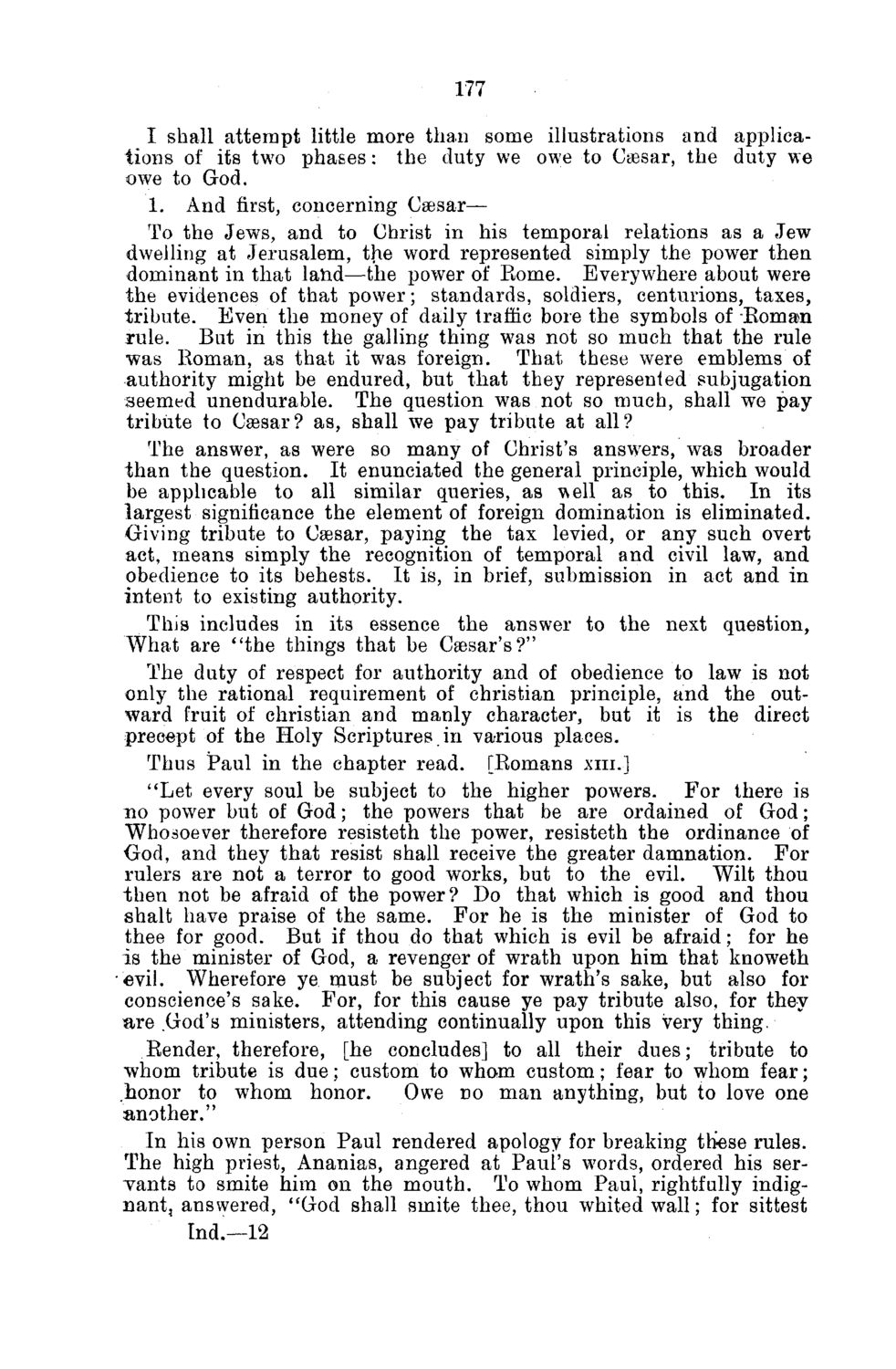| |
| |
Caption: Board of Trustees Minutes - 1886
This is a reduced-resolution page image for fast online browsing.

EXTRACTED TEXT FROM PAGE:
177 I shall attempt little more than some illustrations and applications of its two pha&es: the duty we owe to Caesar, the duty we owe to God, 1. And first, concerning Caesar— To the Jews, and to Christ in his temporal relations as a Jew dwelling at Jerusalem, the word represented simply the power then dominant in that land—the power of Eome. Everywhere about were the evidences of that power; standards, soldiers, centurions, taxes, tribute. Even the money of daily traffic bore the symbols of Boman rule. But in this the galling thing was not so much that the rule was Boman, as that it was foreign. That these were emblems of authority might be endured, but that they represented subjugation seemed unendurable. The question was not so much, shall we pay tribute to Caesar? as, shall we pay tribute at all? The answer, as were so many of Christ's answers, was broader than the question. It enunciated the general principle, which would be applicable to all similar queries, as well as to this. In its largest significance the element of foreign domination is eliminated. Giving tribute to Caesar, paying the tax levied, or any such overt act, means simply the recognition of temporal and civil law, and obedience to its behests. It is, in brief, submission in act and in intent to existing authority. This includes in its essence the answer to the next question, What are "the things that be Caesar's?" The duty of respect for authority and of obedience to law is not only the rational requirement of christian principle, and the outward fruit of christian and manly character, but it is the direct precept of the Holy Scriptures.in various places. Thus Paul in the chapter read. [Bomans XIII.] "Let every soul be subject to the higher powers. For there is no powrer but of God; the powers that be are ordained of God; Whosoever therefore resisteth the power, resisteth the ordinance of God, and they that resist shall receive the greater damnation. For rulers are not a terror to good works, but to the evil. Wilt thou then not be afraid of the power? Do that which is good and thou shalt have praise of the same. For he is the minister of God to thee for good. But if thou do that which is evil be afraid; for he is the minister of God, a revenger of wrath upon him that knoweth •evil. Wherefore ye must be subject for wrath's sake, but also for conscience's sake. For, for this cause ye pay tribute also, for they iare .God's ministers, attending continually upon this very thing. Bender, therefore, [he concludes] to all their dues; tribute to whom tribute is due; custom to whom custom; fear to whom fear; .honor to whom honor. Owe no man anything, but to love one another," In his own person Paul rendered apology for breaking tliese rules. The high priest, Ananias, angered at Paui's words, ordered his servants to smite him on the mouth. To whom Paul, rightfully indignant, answered, "God shall smite thee, thou whited wall; for sittest Ind.—12
| |